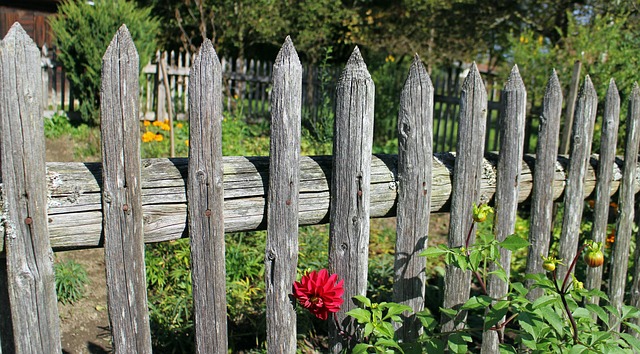In the pursuit of sustainable living, New Bedford, MA residents are increasingly exploring eco-friendly fencing options. This article delves into the diverse and beneficial alternatives to traditional fencing materials. We’ll guide you through the process, from understanding the environmental advantages of sustainable fencing to discovering popular eco-materials and local suppliers. Learn how to install and maintain these long-lasting fences, contributing to a greener New Bedford community.
- Exploring Eco-Friendly Fencing Options in New Bedford
- Benefits of Sustainable Fencing for Your Property
- Popular Eco-Materials for Long-Lasting Fences
- Installation and Maintenance Tips for Green Fences
- Local Availability & Suppliers of Eco-Fencing Materials
Exploring Eco-Friendly Fencing Options in New Bedford
In New Bedford, MA, exploring eco-friendly fencing options has gained popularity as residents and businesses seek sustainable alternatives. The city’s commitment to environmental stewardship aligns perfectly with the benefits offered by these innovative materials. Traditional fencing often involves harmful chemicals and contributes to waste, but eco-friendly options provide a greener solution.
Local suppliers now offer an array of choices, from recycled plastic and wooden posts treated with non-toxic preservatives to natural fibers like hemp or bamboo. These materials not only reduce environmental impact but also enhance the aesthetic appeal of outdoor spaces. Furthermore, they are durable, requiring less maintenance compared to conventional fences, making them a practical choice for New Bedford residents looking to minimize their ecological footprint.
Benefits of Sustainable Fencing for Your Property
Eco-friendly fencing materials offer numerous advantages for homeowners looking to enhance their New Bedford, MA property while minimizing environmental impact. These sustainable alternatives not only contribute to a greener planet but also provide long-lasting durability and aesthetic appeal. One of the key benefits is their reduced carbon footprint; unlike traditional fences made from treated wood or metal, eco-friendly options are typically crafted from recycled materials or renewable resources, lowering greenhouse gas emissions associated with manufacturing.
Additionally, these fencing solutions can help improve local ecosystems. Many sustainable fence materials, such as those made from bamboo or reclaimed wood, support biodiversity by providing habitats for wildlife and reducing the need for new timber harvests, which often involve deforestation. Moreover, they can enhance water conservation efforts; certain types are designed to be drought-resistant, requiring less watering and maintenance, ultimately saving resources and contributing to a more sustainable landscape in New Bedford, MA.
Popular Eco-Materials for Long-Lasting Fences
In New Bedford, MA, as awareness of environmental impact grows, so does the demand for eco-friendly fencing options. Popular choices among these materials include recycled plastic and metal, both renowned for their durability and low maintenance requirements. Recycled plastic fences, often made from post-consumer products like bottles, offer a strong and versatile alternative to traditional wood or vinyl. They are resistant to rot, rust, and fading, ensuring they retain their aesthetic appeal for years.
Metal fencing, particularly those crafted from recycled steel or aluminum, is another sustainable option known for its longevity. These fences can withstand harsh weather conditions and require minimal upkeep, making them a cost-effective and eco-conscious choice. Additionally, metal fencing adds a modern aesthetic to any property, enhancing curb appeal without compromising environmental responsibility.
Installation and Maintenance Tips for Green Fences
When installing an eco-friendly fence, it’s crucial to follow best practices for a successful and sustainable result. Start by preparing the site properly, ensuring the area is free from debris and obstacles. Choose a suitable location that aligns with the natural landscape, minimizing the impact on local ecosystems. Dig posts holes deep enough to support the fence line, and use recycled or biodegradable materials for any hardware. Assembly should be done with care, using tools and methods that reduce tool emissions and waste. Regular maintenance is key; inspect your fence monthly, cleaning it of debris and treating any issues promptly. Trim vegetation around the base to prevent damage from overgrowth. With proper care, eco-friendly fences can last for years, providing both aesthetic appeal and environmental benefits.
Local Availability & Suppliers of Eco-Fencing Materials
New Bedford, MA, is fortunate to have a growing number of local suppliers offering eco-friendly fencing materials. These suppliers are dedicated to providing sustainable options for homeowners and businesses looking to enhance their outdoor spaces while minimizing environmental impact. From recycled plastic and wood composites to natural fibers like hemp and bamboo, the market offers diverse choices. Local hardware stores, garden centers, and specialized eco-building supply shops stock these products, making it convenient for residents to access them.
Exploring these options not only supports a greener approach to landscaping but also fosters a sense of community within New Bedford. Many suppliers are small businesses owned by locals who are passionate about sustainability. By choosing their products, residents contribute to the local economy and promote environmentally conscious practices in their city.
